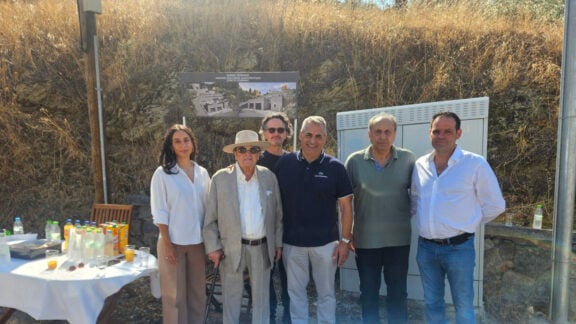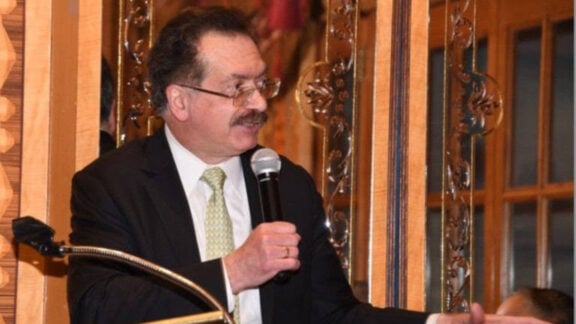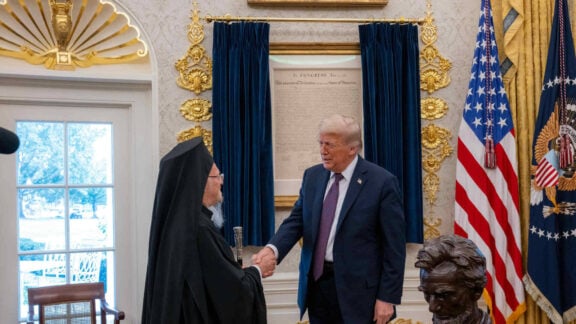A friend of mine was visiting Melbourne for the holidays; she and her husband were staying at an Airbnb in St Kilda, close to the McDonalds restaurant that was trashed during the now infamous brawl that took place a few days before Christmas. They heard nothing. They were resting, uninterrupted, during the whole incident and only realised that something had been going on when they went for a stroll and saw the aftermath.
Yes, they were lucky. They could have been more affected, had they been in the way of the angry, violent youngsters vandalising the area. And they could have reconsidered their decision to stay in St Kilda, looking for another place to stay, after this happened. They didn’t. They stuck to their holiday plans, visiting friends and inviting them for a night out in the area. I met them there a few times, for dinner alfresco and drinks and midnight strolls. We were never harrassed by anyone, but the usual – and usually harmless – raggeddy people asking for money, at varying levels of intoxication.
“What’s the meaning of life?” one asked me. “How the hell should I know?” I snapped back, avoiding to mention that I’m a journalist and therefore obliged by default to have all the answers. “Communication, mate,” he said. “We come to this world to connect with each other.” I agreed.
Not everyone feels the same. In fact, if you listen to the media, we’re not here to connect with each other, but to disassociate, to hide in our homes, find shelter in our communities and our little bubbles. We’re systematically taught to be afraid of others, to avoid them, to see them as a threat and to blame them for whatever is wrong in our society. This has been more than evident these past couple of weeks, when the mainstream media have been making a lot of noise about African Australian, and particularly South Sudanese gangs “terrorising” neighbourhoods in various parts of Melbourne, urging the recently elevated to the status of Home Affairs Super Minister Peter Dutton to threaten to deport offenders (despite that many of them are not visa holders, but Australian citizens) and echoing the mantra of the tabloid headlines: people in Melbourne are afraid to dine in restaurants, for fear of being followed by these African gangs.
It doesn’t matter that the deputy police commissioner of Victoria, Andrew Crisp dismissed the idea that these gangs even exist.
“Don’t play to their ego, don’t call them a gang,” he told reporters. “Don’t build them into something bigger than they already are. Some of it is serious but it is relatively low-level; taking over a house for a party and throwing rocks at police is different to where we were seeing very good planning by groups of people sitting off houses, following people home, breaking in and stealing the keys.”
See, there is a definition of a gang. It requires a minimum of structure and hierarchy, like Golden Dawn has in Greece – they’re so efficient, they made it to the parliament. But in the rest of the world, even Hell’s Angels can’t qualify, much less so Apex and Islander 23. So why do certain media outlets and politicians continue to talk about African gangs that terrorise Melbourne, when they’re not African, they’re not gangs and they don’t really terrorise Melbourne?
Dutton’s claim caused backlash in the realm of social media, with the hashtag #AfricanGangs creating a substantial platform for African Australians to showcase their achievements as productive members of the broader community, their academic credentials, their contributions, their healthy, law-abiding families; others were just making fun of the Minister, detailing their carefree outings to restaurants around the city.
That is not to say that there is no crime in Melbourne. But according to the Crime Statistics Agency, the overall crime rate in Victoria fell by 4.8 per cent in 2017, compared to 2016, even though there has been a rising trend overall. Where youth criminal activity is concerned, the numbers show a more consistent decrease: in 2007-2008 52 per cent of crimes were committed by young people, while in 2015-2016, the respective figure is 40 per cent. If anyone has a different view, if they question these numbers, they should present their own. Not just dismiss facts and replace them with fear-mongering.
Yes, we’ve all heard the stories. Some of us might live next door to a house seemingly occupied by a horde of people making noise and who knows what else. We may have travelled on a train, late at night, when a group of angry looking kids, some intoxicated, enter, causing tension. Or about the kids bullied from teenage kids and coerced to do petty theft. About the Airbnb property vandalised. And the police officer, badly beaten. It was in the news, yes. But what does it mean? That we’re not safe to walk in the streets, because there are random acts of violence happening?
Let’s go back to the statistics. From September 2016 to September 2017, there were 391,153 recorded criminal incidents. That is a bit more than one incident a day – 1.07 to be precise. In fact, you know about it. It’s the one incident reported in the news every day. One incident. In a city of four million people. And it dominates the news. Every night, families turn on their TV sets after dinner to learn about the crime of the day. If they’re lucky, there’s footage, mostly from a security camera, blurry, shaky, but intense.
You can’t really blame the media. From a journalistic perspective, Australia is a nightmare, it produces very few significant news items. There’s probably one major political issue per week – compare that to the crazy news cycle of the US, or the flood of news and debate coming only from Greece any given day. They say no news is good news, which may be true. Except if you work in the news industry where you have to mine for news to make a living. Sure, you can do some investigative journalism, start reporting on the Panama Papers, or the Paradise Papers, or whatever tax haven is in fashion for the filthy rich to hide their assets, or examine how the judiciary system incarcerates Indigenous people, but that doesn’t make for much of a spectacle, compared to security camera footage showing some sad punk entering a 7 Eleven. This is how the narrative is created. By sensationalised reports of isolated criminal acts. And that is how the perception of the dangerous African Gangs myth is created. By inflating random acts of law-breaking and linking them to the scapegoat minority of the day.
As a matter of fact, the majority of crimes in Victoria are committed by people born in Australia, followed by New Zealanders, the fourth-largest migrant group in Victoria. Sudanese-Australians amount to no more than 0.14 per cent of the population and yes, it is a cause of concern to see that they account for 1.5 percent of criminal activity.
“To clarify, these are people who have been linked to a particular incident of offending or more incidents of offending in the reference period,” chief statistician Fiona Dowsley said to a parliamentary committee last year. “They have not been through a court process, they have not been found guilty of anything, and they may not even have been charged.”
But for the sake of argument, let’s agree that Sudanese Australians have a proportionally larger representation in crime statistics. Should this be addressed? Absolutely. We need to know what makes these underprivileged, disenfranchised young people commit offenses. And like, many in their community, do something to tackle the phenomenon. The Age reported on Sunday the story of community leader Richard Deng, who has set up teams of volunteers patrolling the streets in the western suburbs, trying to prevent crime. The cause of crime needs to be addressed. Is it related to the quality of education and funding cuts? What about employment opportunities? Poverty? Inclusion? These are questions we need to answer.
“One thing alone is not going to fix these issues,” said Minister Jenny Mikakos, talking about the employment of youth workers to tackle young people who are at risk of disengaging from school and engaging in anti-social behaviour. The aim of this policy is to “make sure we can keep young people in school longer, because we know that it’s a very effective way to prevent crime and to make sure that young people can be linked to employment, including young people who’ve had some contact with the criminal justice system.”
That’s what the state government is doing – apart from recruiting more police officers. But we all play a part in this. We need to burst our bubble and start looking at the community next to ours, realise that we’re all threads of the same multi-cultural fabric and we have no option than to interact with each other. And in the meantime, maybe we should start being afraid of the journo gangs.









